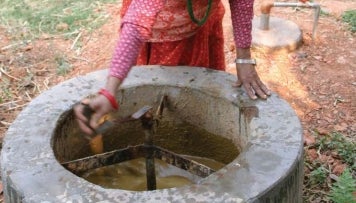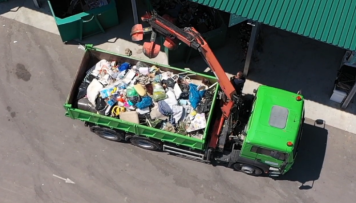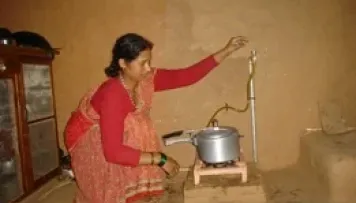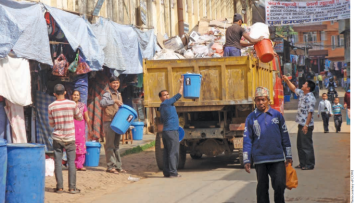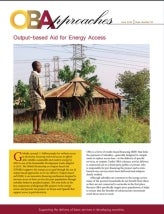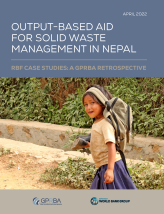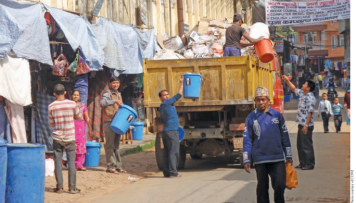
GPOBA recognized the Nepal Village Micro Hydro Project with its fourth "Inn-OBA-tion Award" as the best example of innovative use of results-based financing. The award was announced at a January 25, 2017 luncheon and presented to the project team led by Tomoyuki Yamashita and Yevgen Yesyrkenov. This is the first World Bank Group micro-hydro project to use Results-Based Financing (RBF) as an instrument linked to greenhouse gas mitigation in the battle against climate change, and focuses on sustainability.
The Nepal Village Micro Hydro Project allowed remote mountain communities to use clean, reliable electricity generated from micro-hydro plants for lighting and agro-processing, instead of traditional (and more costly) fuels such as kerosene, diesel fuel, wood or batteries – thereby reducing green-house gas (GHG) emissions and generating community co-benefits. Now, 433 micro run-of-river hydropower plants, located in remote mountain communities of Nepal, are earning results-based carbon revenue that is being reinvested to finance new micro hydro plants and rehabilitate existing ones.
The World Bank’s Community Development Carbon Fund (CDCF) provided technical assistance and funding to get the project registered as a Clean Development Mechanism (CDM) project under the United Nations Framework Convention on Climate Change (UNFCCC). The CDCF is a public-private partnership of 15 private sector companies and 9 governments, administered by the World Bank that acts as Trustee. It aims to contribute to a more equitable regional distribution of carbon finance resources by focusing mostly on the poorest countries of the world.
Under the RBF Mechanism, the GHG emission reductions are monitored by the project entity as per the CDM GHG accounting methodology and monitoring plan; verified by a third party auditor; accredited and certified by the UNFCCC. This certified emission reduction (i.e. ton CO2 equivalent) is then sold to the CDCF generating a results-based revenue stream for the project entity. As per the Emission Reduction Purchase Agreement between the CDCF and the PE, the emission reduction payment is done upon certification of emission reductions as well as the implementation of the community benefit plan (CBP).
The project then uses the results-based financial revenues generated for reinvestment to scale up micro-hydro plants and to maintain and rehabilitate existing ones to ensure the sustainability of operations. As a result of this project 665,000 people have access to reliable, clean off-grid electricity in remote communities in Nepal.
The following two projects were also recognized at this year’s Inn-OBA-tion awards.
Djibouti Health Sector Improvement Project
This project brings together two successful RBF health interventions in Djibouti, both considered flagship projects in the country, to tackle supply and demand-side challenges to the health sector, and encourages partnerships and collaboration at all levels to more effectively address national health issues.
Uganda Reproductive Health Voucher Program
The success of the Uganda Reproductive Health Voucher Program, the first of its kind in Uganda, has contributed to a number of other RBF health projects in the country. The OBA voucher project has been scaled up by the Ministry of Health to expand the program to rural communities and other districts of Uganda. The scale up is funded by a $13.3 million GPOBA grant with an additional $3 million from the Government of Uganda and $1 million from United Nations Population Fund (UNFPA).
